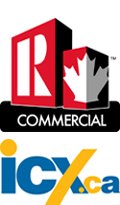Of Course It's For Sale!
 Back in the spring, I did a piece on selling your business and was featured on our local Chamber of Commerce Podcast site as a result. Since I'm taking a bit of a break right now, I thought this might be a good syndicated post to share about getting ready to sell your business.
Back in the spring, I did a piece on selling your business and was featured on our local Chamber of Commerce Podcast site as a result. Since I'm taking a bit of a break right now, I thought this might be a good syndicated post to share about getting ready to sell your business.
Syndicated Post
I sent a friend who was interested in owning a business to visit a shop in town. I had told her the owner had just bought the place and had done a really good job of getting more customers into the store.
When I saw my friend the next day she told me she had visited the store and was surprised to hear the new owner say she wanted to sell it. I was surprised to hear that, so when I was in town a couple of days later I made a point of talking to the owner. She remembered my friend and all her questions. "That woman was so interested in the shop I asked her if she wanted to buy it." She went on to explain: "It's a business. It should always be for sale - for the right price."
Many business owners become so emotionally attached to their business that they don't consider selling until it's too late. If someone asked you to name a price for your business what would that price be?
Many entrepreneurs start businesses planning to sell them within a few years. Others just struggle to actually become the owner of the business instead of its only employee - if you thought working for someone else was bad, try working for yourself!
To be the business owner is to think of your business as an asset, something like a car or a house that can be sold on the open market. What gives the business value is its assets and the ability to generate positive cash flow.
No matter how you feel about your business, we can calculate what it's worth. For example, most business brokers will probably tell you that a typical business is worth 1.5 to 3.5 times discretionary cash flow plus the value of the tangible assets. In this case, discretionary cash flow is total cash flow plus the expenses that a new owner would not be obligated to pay - depreciation, owner's salary, auto expenses, loan payments, retirement contribution, travel and entertainment, etc.
Knowing what it's worth now will allow you to make the changes that will increase its value in the future. It will probably require increasing revenue, but if you increase revenue at the expense of margins you will actually be decreasing the value. Pay attention to the cost of that additional revenue. Do you need to do more marketing, increase production capacity, or add employees? Very often these steps can be taken incrementally to lessen the impact on cash flow but achieve the same long term goals. The key is planning and having the patience and persistence to achieve the results.
Do you know what your business is worth? If not, how would you know what to say if someone offers you a million dollars cash for yours? Maybe it's time to find out.
Dave Ferguson is a business coach and the owner of Lake County Business Coaching, Inc., a coaching firm dedicated to helping people in business to improve their performance and their results. More information is available at http://www.LakeCountyBusinessCoaching.com.
Article Source: http://EzineArticles.com/?expert=Dave_Ferguson




0 comments:
Post a Comment